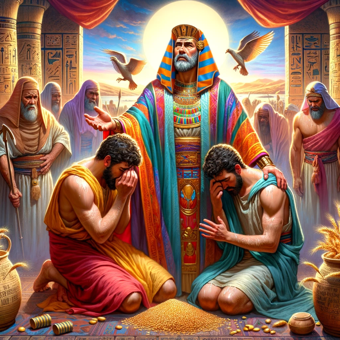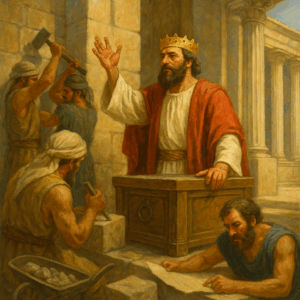Introduction:
Genesis 50, the concluding chapter of the first book of the Bible, presents a powerful and emotional end to the saga of Joseph and his family. This chapter not only wraps up the story of Joseph but also sets the stage for the Israelites’ future in Egypt, underscoring themes of forgiveness, reconciliation, and the unshakable bonds of family.
The Emotional Reunion:
After the death of their father Jacob, Joseph’s brothers fear retribution for their past mistreatment of him. However, Joseph reassures them, extending forgiveness and expressing his understanding of God’s greater plan. This moment of forgiveness and reassurance highlights Joseph’s remarkable spiritual growth and his unwavering faith in God’s providence.
Key Themes and Contemporary Reflections:
Forgiveness and Healing:
Joseph’s forgiveness of his brothers’ betrayal is a profound example of the healing power of forgiveness. He chooses reconciliation over revenge, emphasizing the role of forgiveness in mending fractured relationships.
Modern Application: In our lives, the act of forgiving those who have wronged us can be challenging yet liberating. This chapter encourages us to embrace forgiveness, not just as an act of grace towards others but as a pathway to personal peace and healing.
Understanding Divine Purpose:
Joseph’s acknowledgment of God’s purpose in his trials – “You intended to harm me, but God intended it for good” – reflects a deep understanding of divine sovereignty and purpose in life’s challenges.
Modern Application: This perspective offers comfort and strength during difficult times. It reminds us that challenges and adversities can be part of a bigger plan for our growth and the greater good.
Legacy and Transition:
As Genesis 50 concludes, Joseph makes the Israelites promise to carry his bones out of Egypt when God delivers them to the promised land. This request symbolizes the Israelites’ eventual exodus from Egypt and their continual connection to the Promised Land.
Modern Application: Joseph’s focus on legacy and future generations inspires us to consider our own legacy. It challenges us to think about how our actions and decisions impact not just our lives but those of future generations.
Conclusion:
Genesis 50 is a testament to the power of forgiveness, the importance of understanding divine purpose, and the lasting impact of our actions on future generations. As the book of Genesis closes, we are left to reflect on the resilience of faith through trials, the beauty of reconciliation, and the enduring promise of hope for the future. Joseph’s journey from the pit to the palace, and his ultimate choice of forgiveness and faith, offers timeless lessons for each of us as we navigate the complexities of our own lives.






